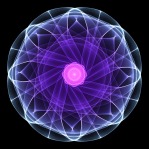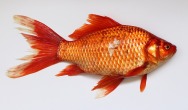A heart surgeon was performing a delicate operation when large chunks of the ceiling came crashing down all around him. People in the operating room screamed, the noise was deafening. But the surgeon was so concentrated on
 the surgery that he didn’t notice. When your creator’s mind is as deeply on the act of creation as it should be when you are painting, writing, dancing, acting, like that surgeon you will be aware of nothing else. You will look up and see that your friend has been talking to you and you didn’t notice or that rain is coming in the window that has blown open while you worked. You won’t hear blaring music from the apartment next door.
the surgery that he didn’t notice. When your creator’s mind is as deeply on the act of creation as it should be when you are painting, writing, dancing, acting, like that surgeon you will be aware of nothing else. You will look up and see that your friend has been talking to you and you didn’t notice or that rain is coming in the window that has blown open while you worked. You won’t hear blaring music from the apartment next door.
Creative people often notice that if their ability to concentrate while they are working is poor, their work is also poor, but that if their concentration is good, their work is also good–cause and effect–that concentration is essential to their doing their best work.
An actor’s concentration must be total and never not total from curtain up to curtain down. The more total her concentration, the more engrossed in her performance the audience will be. Also, the more concentrated a writer is while writing, the clearer the writing should be. And isn’t clarity the secret of supreme writing that not every writer has learned, but the best writers have? It’s obvious that to produce clear work you must be thinking clearly.
Part One of this two-part post began…
… Concentration is the heart and soul of creative work. How to develop and sustain it is a concern of actors, painters, dancers, pianists, composers,  writers, and all other creators. Unless you bring to bear all the mental and physical alertness and clear-mindedness that you have the potential for you will not be enjoying the best conditions for your creative work.
writers, and all other creators. Unless you bring to bear all the mental and physical alertness and clear-mindedness that you have the potential for you will not be enjoying the best conditions for your creative work.
… Creators who can concentrate their mind like brilliant beacons of light at will can focus anywhere and can work under any conditions, and whenever they wish.
… Concentration is an ability most people have not developed. Their minds run wild.
Creators must concentrate on what they are doing in the moment, in the “now.” Then they must be able, when that “now” is finished, to move onto the next “now.” They work very hard. They should strive to develop the ability to be as little affected by distractions as possible, to brush them off and to quickly resume their performance after an interruption. Some creators avoid distractions almost completely by eliminating TV, clocks, telephone calls, Face Book, Emails, and unnecessary conversations.
Select a place where you concentrate best—for most creators that’s the same place every day. Get started (the best way to get started is to get started), keep distractions and diversions to a minimum and don’t stop for any reason until the day’s goal is reached, except for brief rest periods. Look at the prescriptions for increasing concentration in Part One of this two-part post.
Persist working and growing in the face of obstacles and inevitable setbacks. Overcoming psychological obstacles such as discouragement, self-doubt, lack  of confidence, and the ubiquitous creator’s fear of who knows what is another skill creators must master. You can still do great work if you don’t let the obstacle stop you from concentrating. You must also learn to pace yourself and maintain your energy and stamina over days, weeks, months, and years.
of confidence, and the ubiquitous creator’s fear of who knows what is another skill creators must master. You can still do great work if you don’t let the obstacle stop you from concentrating. You must also learn to pace yourself and maintain your energy and stamina over days, weeks, months, and years.
Konstantin Stanislavski was the most significant and most often quoted figure in the history of actor training. He was a pioneer attempting to define the actor’s mental, physical, intellectual, and emotional processes in a way that was comprehensive and had never been attempted before. He said, “The first step of creative art is concentration of attention…Through my system we try to achieve a state of concentrated attention.”
He said that concentration cannot be defined in a few words. But that “the thought must be fixed entirely and absolutely on one object or idea and only it, without breaking the circle of creative attention for anything else…You need all the power of your attention to dwell on each separate aspect of your task.”
How are you to know that your mind has become concentrated? What is the test? It is when the awareness of time has vanished. The more time passes unnoticed the more concentrated you are.
When I was so ill and in such pain I looked for relief. I observed that since the human mind can be on only one thing at a time, if I absorbed myself deeply in some thought or activity my mind could not be aware of my misery. Prize fighters, hockey players, football players, bullfighters, soldiers in combat, and others engaged in activities requiring intense concentration may be seriously injured but yet experience no pain whatsoever. I took seriously the Buddhist aphorism “Without mind there cannot be pain.” When my mind was deeply engaged in working on my Growing Up Stories when I was ill the sensations of pain, so horrible usually, thankfully, didn’t trouble me.
It’s easy to be absorbed in the creative problem if it’s interesting–that’s not hard at all. But what if it’s not interesting? What if it’s boring? You know as well as I that creative work and the slow snail’s pace process of developing your skills to a level you’re satisfied with are often drudgery. Drudgery or not you still have problems to solve before you can go on with your creative performance. What can you do? When something is not interesting the first thing you do is what you shouldn’t do: you give it less attention. But give more of your attention to something and it will become more interesting.
The famous biologist Louis Agassiz was known for turning out students with highly developed powers of observation. Many of them went on to become eminent in the field. A new student appeared and asked Agassiz to teach him. Agassiz took a fish from the jar of preservative and said, “Observe this fish carefully and when I return be ready to report to me what you noticed.”
Left alone, the student sat down to look at the fish. It was a fish just like any other. The student finished looking and sat waiting, but no teacher. Hours  passed and the student grew restless. He asked himself why he had hooked up with an old man who was obviously behind the times.
passed and the student grew restless. He asked himself why he had hooked up with an old man who was obviously behind the times.
With nothing else to do, the student counted the scales, then the spines of the fins, then drew a picture of the fish. In doing so, he noticed the fish had no eyelids. He continued drawing and noticing other facts that had escaped him. And he learned that a fish is interesting if you really see it. (From Fighting to Win: Samurai Techniques for Your Work and Life)
You may turn to something else and return to your work later when you’re more focused. At times concentration can be so intense that it actually interferes with work and is exhausting, and so then it’s better to decrease attention.
Some people find that working when they’re tired and their mind is less sensitive to distractions is best for them. Then their work speeds up.
Your job to figure out how to focus on your work for a desired period of time. You have to learn to abandon what isn’t working and put aside problems that aren’t worth bothering with because they will lead to dead-ends.
Condition your mind. Practice concentrating on one thing at a time until you can concentrate at will. Focus on concentrating on things, on people, on ideas, on the text you’re reading. Look at your thumb. Turn it, study it and see it. Stare at your face in the mirror for ten minutes. See the blemishes; see the beauty you’d never noticed.
Fix your mind completely on one thing at a time and give it all your full attention–that one thought that it’s most important to express in that one  sentence, that one right word that will capture exactly what the poem means, that one brushstroke, that one most-important emotion you, the actor, will communicate to the audience in Act Two. Practice keeping yourself in that state of alertness as long as you’re working.
sentence, that one right word that will capture exactly what the poem means, that one brushstroke, that one most-important emotion you, the actor, will communicate to the audience in Act Two. Practice keeping yourself in that state of alertness as long as you’re working.
The great Vivekananda said, “There is no limit to the powers of the human mind. The more concentrated it is, the more power is brought to bear on one point; that is the secret… In making money, or in worshiping God, or in doing anything, the stronger the power of concentration, the better will that thing be done.”
© 2017 David J. Rogers
For my interview from the international teleconference with Ben Dean about Fighting to Win, click on the following link:
Order Fighting to Win: Samurai Techniques for Your Work and Life eBook by David J. Rogers
or
Order Waging Business Warfare: Lessons From the Military Masters in Achieving Competitive Superiority
or






